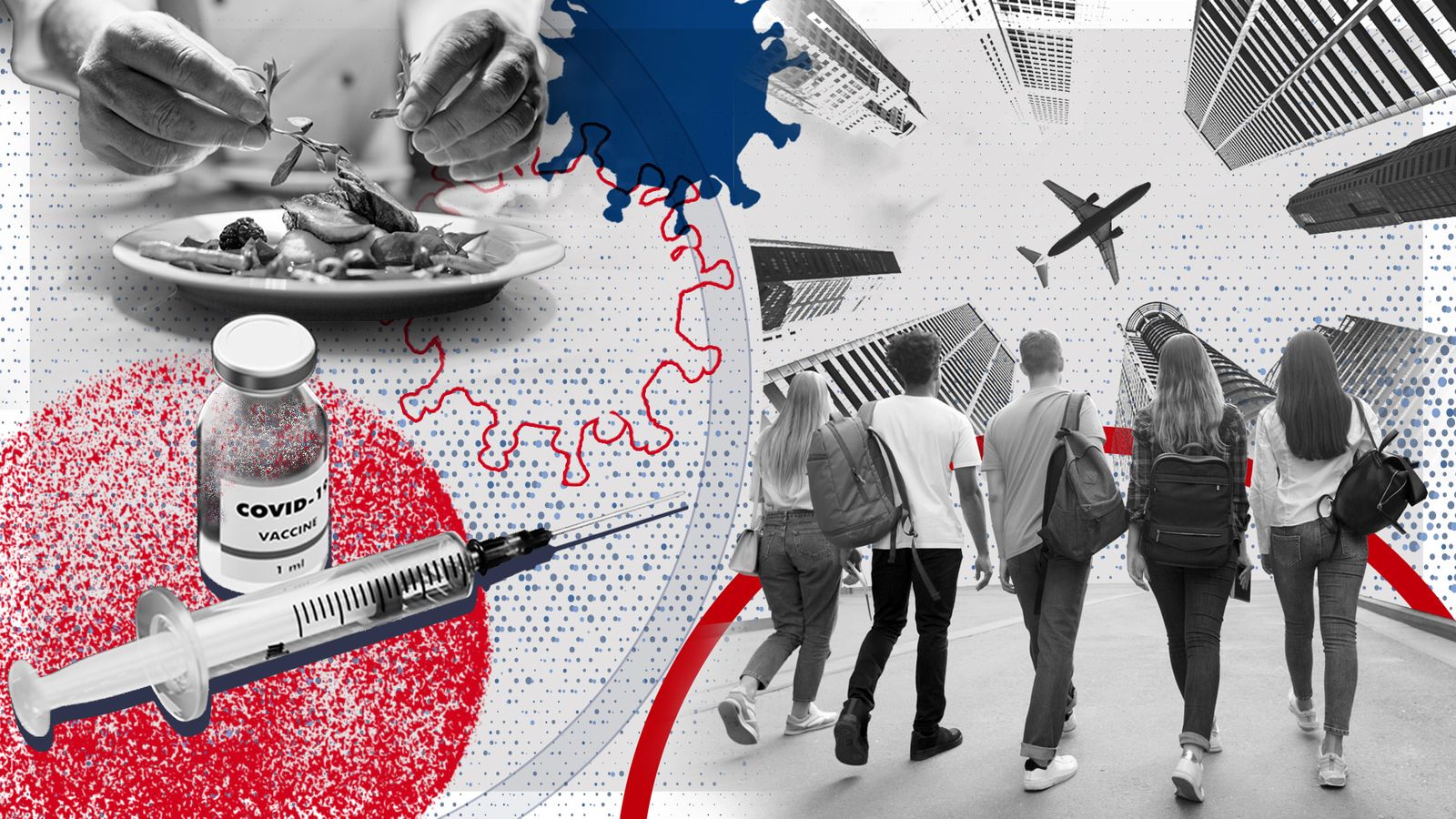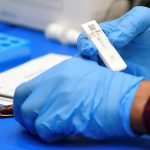Boris Johnson is to set out plans for a domestic “vaccine passport” system to help the country ease itself out of lockdown.
Mr Johnson said he rejects the term “vaccine passports”, but on Bank Holiday Monday he will announce a system for “COVID-status certification” which could allow people to return to sporting fixtures, theatres and other public events.
Officials are planning a series of trial events over the coming months as they look to find a way for venues such as football grounds and nightclubs to reopen without the need for social distancing.
MPs will want to study the proposals closely with many deeply suspicious about domestic “vaccine passports” and some calling them “dangerous” and “discriminatory”.
Here is what we know so far about how a scheme could work in England.
How will a vaccine passport scheme work?
The government is looking at developing a system over the coming months which will consider three factors: vaccination, a recent negative test, or natural immunity determined on the basis of a positive test taken in the previous six months.
People could prove their status using an app.
Writing in the Sunday Telegraph, Cabinet Office minister Michael Gove suggested the UK could take inspiration from a “vaccine passport” scheme already in use in Israel.
“The Israeli approach involves a smartphone app and the NHS app could serve a similar purpose here,” he said.
A paper certificate could also be used.
The government says the NHS is working on providing individuals with a means to demonstrate their coronavirus status through digital and non-digital routes.
On an international level, some countries are already working on requirements for people to prove their status before arriving.
Please use Chrome browser for a more accessible video player
The European Union is working on a digital green certificate showing if someone is vaccinated, has a negative test or has recovered from COVID-19.
Where could they be used?
“Vaccine passports” are likely to be used for large events, like sporting fixtures and concerts, or for entry to places were social distancing is hard to maintain, like theatres, nightclubs and bars.
It is likely these will be used to manage risk at and reduce social distancing measures as vaccination doesn’t provide 100% protection.
Mr Johnson has suggested a certificate could give “maximum confidence” to businesses and customers as society reopens.
Please use Chrome browser for a more accessible video player
However, businesses opening on 12 April, including pubs, restaurants and non-essential shops, will not be required to introduce certification.
And in the long term, vaccine certification won’t be necessary to use public transport or to enter essential shops.
There will also be exemptions for people for whom vaccination is not advised and repeat testing would be difficult.
Has there been opposition to the idea?
There is strong opposition to “vaccine passports” from many MPs.
More than 70 MPs, including 40 Conservatives, as well as peers from the House of Lords, have signed a pledge against the introduction of “vaccine passports” in England, claiming they would be “divisive and discriminatory”.
The pledge, signed by former Labour leader Jeremy Corbyn as well as other prominent figures such as Conservative former leader Sir Iain Duncan Smith, Labour former shadow chancellor John McDonnell and ex-Lib Dem leader Tim Farron, warns the government against bringing in the scheme.
Baroness Chakrabarti, who warns that using coronavirus certificates could create a “checkpoint Britain,” told BBC Radio 4’s Today programme: “It’s one thing to have a passport to travel internationally, that is a privilege, even a luxury, but participating in local community life is a fundamental right.”
The British Beer and Pub Association (BPPA) fears that a move to recommend that pubs and other hospitality venues must demand proof of immunity from people to allow them to enter – with the threat of fines for venues if non-compliant – could prevent millions of young people visiting the pub for months, unless they get themselves tested in advance.
BBPA chief executive Emma McClarkin says vaccine passports could feel like they are discriminating against sections of the population who have not had the jab, such as pregnant women.
When could they be introduced?
A report in The Sunday Telegraph suggests the technology may not be ready until the autumn, as developing the mobile app may take months.
Meanwhile, it has been suggested that the government may try to win over the Tory rebels by promising them the initiative will be temporary when it does come in – perhaps lasting no longer than a year.
Subscribe to the Daily podcast on Apple Podcasts, Google Podcasts, Spotify, Spreaker
Culture Secretary Oliver Dowden has previously suggested “vaccine passports” wouldn’t be permanent but they could be a beneficial “tool in the short term” to safely reopen venues.
Are any test events planned?
An array of pilot events begin in less than two weeks.
They will first be at the Hot Water Comedy Club in Liverpool on 16 April.
Further Liverpool trials will be at the Luna Cinema from 23-25 April, a business event at the ACC conference centre on 28 April, and the Circus Nightclub from 30 April to 1 May.
The Wembley pilots will be the Leicester City/Southampton FA Cup semi-final on 18 April, the Carabao Cup Final between Manchester City and Tottenham Hotspur on 25 April, and the FA Cup Final on 15 May.
The other trials are the World Snooker Championship at Sheffield’s Crucible Theatre from 17 April – 3 May, and a mass participation run at Hatfield House, Hertfordshire, 24-25 April.






















